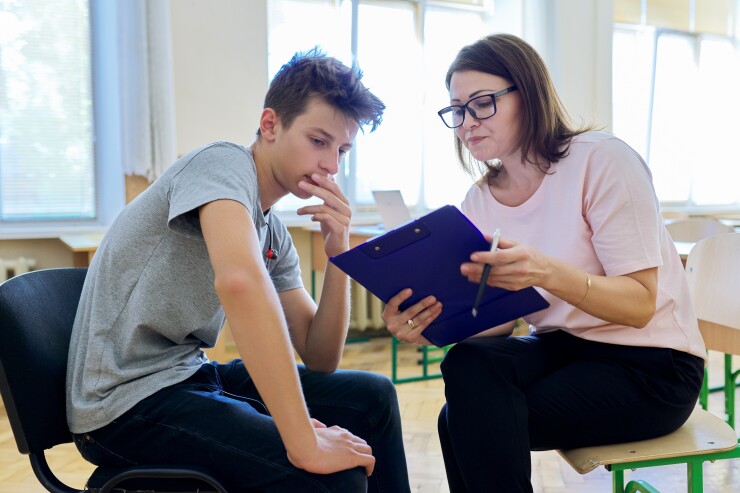As a new cohort of college freshmen settles onto campuses, many students aren't just thinking about classes and dorm life. Aiming for an edge in a
What was once a rite of passage after junior year has shifted earlier. According to new data from Handshake, a career site for students, almost 15% of the class of 2028 had applied to
"Lately I've had an elevated number of requests for multi-year coaching packages starting as early as freshman year," said Lesley Mitler, a career coach who works with students and their families on early career planning.
Early-career advisor Jill Tipograph has seen the same. "I just had a conversation with another family who contacted us literally when their child got into college. We went through a discussion and now we're starting all the work," she said. "This is a growing norm."
Read more:
Searching strategically
Some students say they've jumped in sooner in part because they've seen how challenging the job market has been for upperclassmen.
"It was kind of intimidating seeing all these older kids who have such good experiences and such good skill sets are still not landing a job post-grad," said Naila Ahsan, a Santa Clara University sophomore who interned at a small venture capital firm this past summer. "It definitely does factor into thinking, 'OK, I need to be as proactive as early as possible so I can mitigate the risk later.'"
Part of Ahsan's strategy for finding an internship as an underclassman was to be as open-minded as possible. She applied to big-name companies, but also investigated opportunities at smaller shops. As a freshman, her main priority was to find a role where she could gain as much hands-on experience as possible, rather than one that would add a brand name to her resume, she said.
Read more:
Eduardo Amaral Viana, a Notre Dame sophomore from Brazil, took on two internships after freshman year, one at an AI startup and another in academic research. He wanted to get these experiences early on, in order to have a better shot at landing a prime summer gig after his junior year. Especially for international students, he said, "those internships are getting harder and harder to get into."
An added motivation for Amaral Viana was figuring out early if he was on the right track. Some of his friends have had a hard time getting jobs post-graduation, in part, he said, because they tried to pivot late in their schooling after realizing they wanted to pursue a different path than they'd originally planned.
Parental involvement
Some parents are helping their children navigate the compressed timeline with guidance from early-career coaches, whose services may include identifying and evaluating internship opportunities, constructing resumes, conducting mock interviews, and editing thank-you notes or other correspondence to internship program managers. Coaching fees typically range from $350 to more than $5,000, depending on the time involved and the specific services requested.
Krish Sastry, a Bay Area parent, hired one of Mitler's colleagues to work with his son. "It's really hard to get an internship as a sophomore, but he landed one," Sastry said. "It's about risk mitigation," he added, saying he sees this as a way for his son to gain an edge as AI threatens to erode the first rung of the career ladder.
The concern isn't unfounded. Job postings on Handshake were down
Read more:
AI is already changing the nature of entry-level work in some fields, eliminating some routine tasks while raising expectations for new hires' judgment, communication and digital fluency. A recent study by researchers at Stanford University found that employment has
For the many students who rely on part-time jobs during the school year, the growing emphasis on internships sets up a difficult tradeoff. For these students, taking a more career-oriented summer internship often means walking away from a reliable source of income that might not be available to them again in the fall if someone else takes their place, said Monne Williams, Handshake's chief impact officer.
The pressure to intern earlier also might mean students are less prepared for corporate environments when they land there. As entry-level career coach Julia Hicks de Peyster observed, even very bright college students "can be young emotionally."
But if that's a problem for employers, there's scant evidence of it.
"Corporate hiring seems to be getting younger and younger every year," she said.






